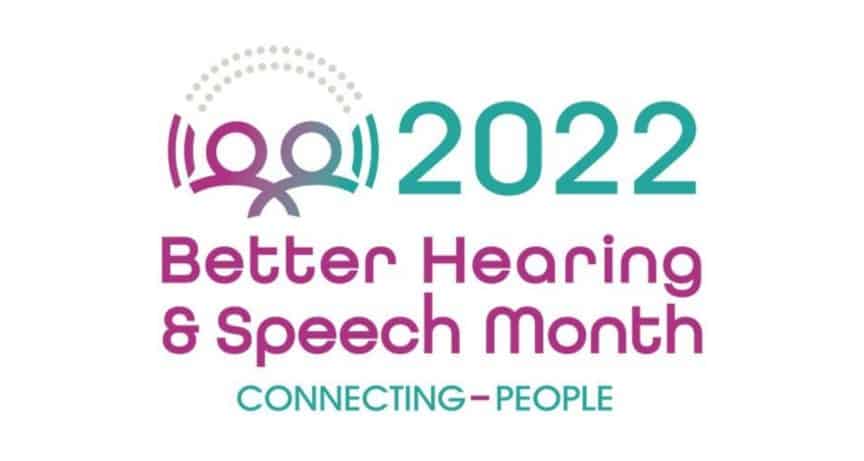Do you suffer from hearing loss? It’s important to remember that you aren’t alone. Commonly associated with the elderly, today we understand that hearing loss can affect anyone at any age. Around one in eight people in the United States (13 percent, or 30 million) aged 12 years or older has hearing loss in both ears, based on standard hearing examinations. With this loss comes surprising health impacts, past simple misunderstandings due to struggles hearing speech. This May is Better Hearing & Speech Month (BHSM), a national campaign to raise awareness around the effects of hearing loss and the importance of treatment. Led by the American Speech-Language-Hearing Association (ASHA) annually, the theme this year is “Connecting People”. Now that we have lived with COVID-19 for over two years, this theme seems to have an added significance.
Hearing Loss and Connection
Many people underestimate hearing loss a condition which effects the ears, without exploring how communication issues can affect emotional, mental, and overall physical health. Communication is the corner stone of all healthy relationships. Not only do we use conversation to connect to others and to sort out difference, but we communicate to have fun and feel a part of something larger than our selves. Many have underestimated the effects of social distancing have had on us as a society. Humans by nature are social creatures who rely on interaction for mental and physical health. As hearing loss develops it can impede social connection due to regular misunderstandings.
How Hearing Loss Develops
The most common type of hearing loss is sensorineural, comprising 90% of all cases. It occurs when tiny hair-like cells of the cochlea become damaged, impeding the transfer of audio information to the brain. This can often happen slowly over years, from a great number of causes including exposure to noise, impact to the head, infection, exposure to certain medications, some airborne chemicals, or changes to the ear due to advanced age. At first just some tones or pitches are lost, leaving slight spaces in words or sentences. As it progresses it becomes increasingly difficult to carry out everyday conversations.
Isolation Connected to Hearing Loss
Not only is it confusing to communicate when there is a common loss of sound within daily conversation, but it is exhausting. Even a simple interaction at the grocery store or a telephone conversation can leave a person with unaddressed hearing loss feeling fatigued in an uncharacteristic way. They often say that hearing loss can go as far to change an individual’s personality. While a person who was once outgoing develops more serious side effects of hearing loss, they may seem to withdraw from activities which once may have defined them in a way.
The Health Risks of Isolation
Self-isolation, especially for individuals who once enjoyed social connection can often increase feelings of anxiety and depression. With depression come less likeliness to try new things, go new places and take proper care of oneself. This can lead to poor lifestyle choices such as less exercise, poor diet, and excessive alcohol consumption. This is why hearing loss is often common in combination with other health issues such as hypertension, diabetes, and cardiovascular disease.
Hearing Loss and Cognitive Decline
In addition, a rich social life has been connected to a lower risk of Alzheimer’s disease and other forms of dementia. Social connection keeps our brain working quickly, building new relationships, and constantly forming new ideas. Hearing loss can hinder this important work causing the brain to atrophy. Hearing loss causes parts of the brain go unused due to some audio signals being in a sense, interrupted by sensorineural damage.
The Importance of Treatment
While sensorineural hearing loss currently cannot be reversed, it can be treated effectively. Hearing aids are electrical devices which are worn in the ear canal or around the ear and amplify sounds based on an individual’s hearing exam. They allow a person to hear the missing pieces of conversation, making it easier to connect to the people in your life and the activities you love to do. This May, use BSHM as a call to action. Don’t let hearing loss take away from your relationships and the things you love to do. Schedule a hearing exam with us today!

